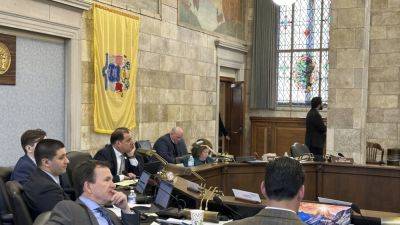Civil liberty, law critics say stiffer hate crime sentences in online harms bill 'troubling'
The Liberal government is proposing «draconian penalties» in the Criminal Code as part of its sweeping plan to target online hate, the Canadian Civil Liberties Association warns.
Justice Minister Arif Virani tabled the long-awaited bill earlier this week, billed as a way to address dangers that children face online.
It also includes the introduction of stiffer penalties for hate offences.
The bill proposes increasing the maximum punishment for advocating genocide to life imprisonment, and allowing sentences of up to five years in prison for other hate propaganda offences.
The national civil liberties group says higher sentences risk chilling free speech and also undermine «the principles of proportionality and fairness» within the legal system.
Noa Mendelsohn Aviv, its executive director and general counsel, said in an interview Wednesday she sees significant liberty issues throughout the bill.
There are problems, too, with the proposal for a digital safety commission that would be given sweeping powers to regulate social-media giants, she said.
When it comes to hate speech offences, she said she's concerned because of the difficulty of distinguishing between «political activism, passionate debate and offensive speech.»
To address such concerns, Virani has said the government is seeking to clarify the definition of hatred to reflect Supreme Court rulings on the matter.
It will be newly defined as «the emotion that involves detestation or vilification» that is «stronger than disdain or dislike.»
The bill also says that a statement that «discredits, humiliates, hurts or offends» would not meet the bar to be considered promoting or inciting hatred.
University of Windsor law professor Richard Moon, who specializes in freedom of







